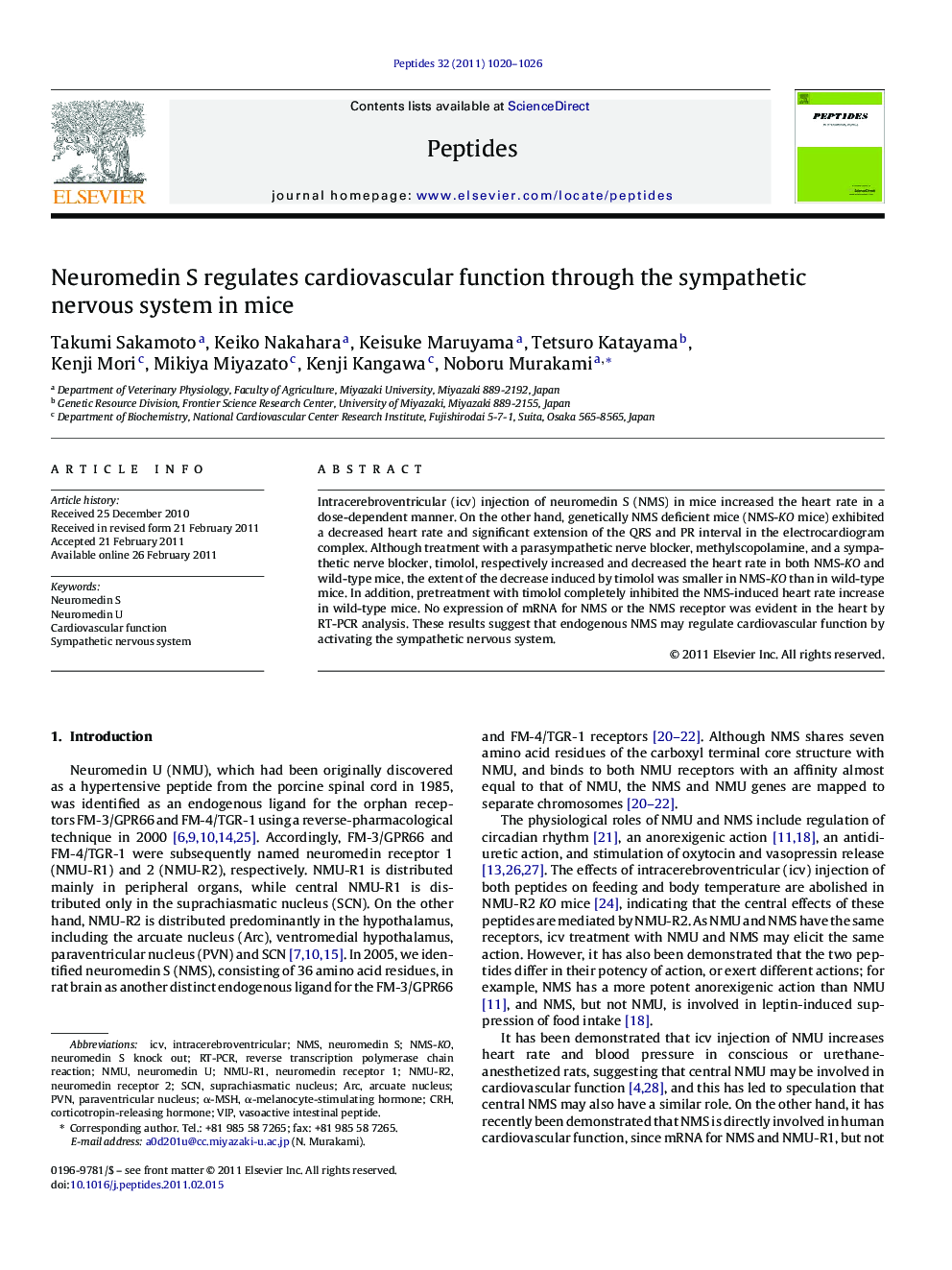| Article ID | Journal | Published Year | Pages | File Type |
|---|---|---|---|---|
| 2006556 | Peptides | 2011 | 7 Pages |
Intracerebroventricular (icv) injection of neuromedin S (NMS) in mice increased the heart rate in a dose-dependent manner. On the other hand, genetically NMS deficient mice (NMS-KO mice) exhibited a decreased heart rate and significant extension of the QRS and PR interval in the electrocardiogram complex. Although treatment with a parasympathetic nerve blocker, methylscopolamine, and a sympathetic nerve blocker, timolol, respectively increased and decreased the heart rate in both NMS-KO and wild-type mice, the extent of the decrease induced by timolol was smaller in NMS-KO than in wild-type mice. In addition, pretreatment with timolol completely inhibited the NMS-induced heart rate increase in wild-type mice. No expression of mRNA for NMS or the NMS receptor was evident in the heart by RT-PCR analysis. These results suggest that endogenous NMS may regulate cardiovascular function by activating the sympathetic nervous system.
► Administration of neuromedin S increases heart rate in mouse. ► Neuromedin S-KO mouse exhibits a decreased heart rate. ► Sympathetic nerve blocker inhibits the neuromedin S-induced increase of heart rate.
